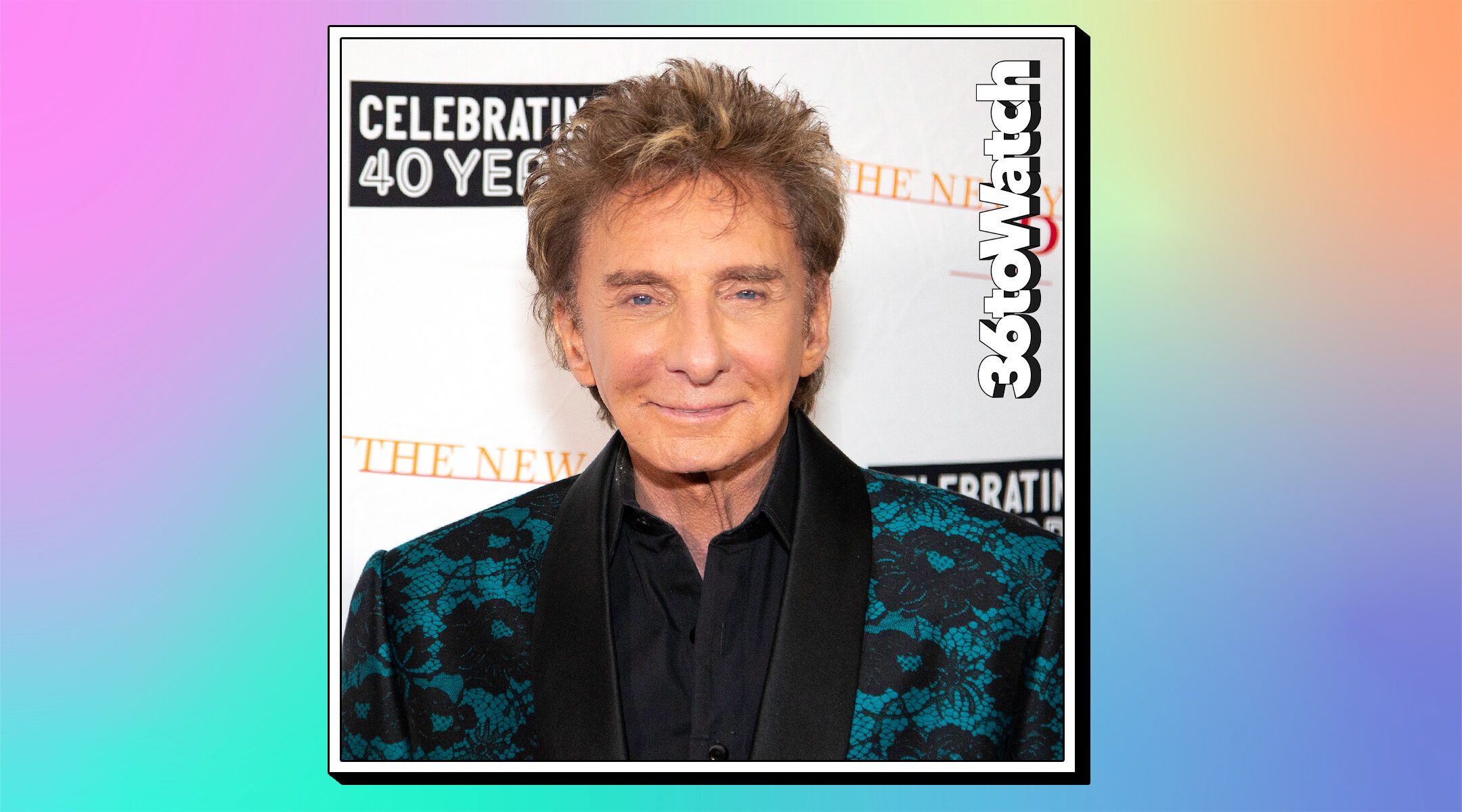For the full list of this year’s 36 to Watch — which honors leaders, entrepreneurs and changemakers who are making a difference in New York’s Jewish community — click here.
It’s not as if people haven’t been watching Barry Manilow for over five decades now, starting in the 1970s when he recorded the first of 13 multi-platinum albums and 28 top 10 hits. Raised Jewish in Williamsburg, Brooklyn, he wrote and sang commercial jingles and accompanied other artists (including a young Bette Midler) before the 1974 single “Mandy” vaulted him to pop stardom.
Manilow, 79, could have coasted on his success, filling up theaters by playing his oldies (as he is expected to do during a run at Radio City Music Hall from May 31-June 4). But in recent years he was, well, ready to take a chance again. This coming fall, “Harmony,” his years-in-the-making musical about a real-life performing troupe of Jews and gentiles who combined close harmonies and stage antics in Germany during the 1920s and ’30s, will open on Broadway.
The musical, for which Manilow wrote the songs and his longtime partner, Bruce Sussman, wrote the lyrics, was first staged in 1997, but it wasn’t until April 2022 that it made its New York debut in a National Yiddish Theatre Folksbiene production at the Museum of Jewish Heritage.
This story is part of JTA's coverage of New York through the New York Jewish Week. To read more stories like this, sign up for our daily New York newsletter here.
The play centers around the German group the Comedian Harmonists, whose tight harmonies and humorous approach made them an international sensation in the 1920s. In 1934, after the Nazis rose to power, the group was prohibited from giving concerts because two members were Jewish, as the Jewish Telegraphic Agency reported at the time.
The Broadway production follows a season which saw two major plays exploring historical antisemitism, “Leopoldstadt” and “Parade.”
But Manilow also wants to celebrate the Comedian Harmonists as entertainers. In an interview with the New York Jewish Week, Manilow said that he drew on his “very musical Yiddish upbringing” in writing “Harmony.” “When I left Williamsburg, I knew that world of Yiddish folk songs. I played them, I sang them, I arranged them, I knew everything about them. Jumping into ‘Harmony’ was just a big familiar musical experience for me.”
Want to keep up with stories of other innovative Jewish New Yorkers? Click here to subscribe to the New York Jewish Week’s free email newsletter.
The New York Jewish Week brings you the stories behind the headlines, keeping you connected to Jewish life in New York. Help sustain the reporting you trust by donating today.





